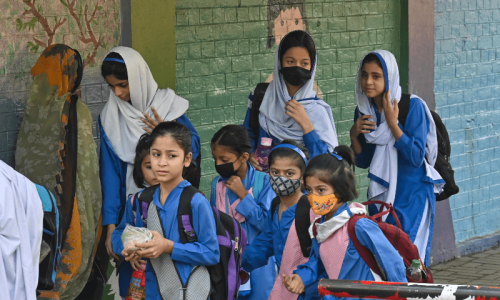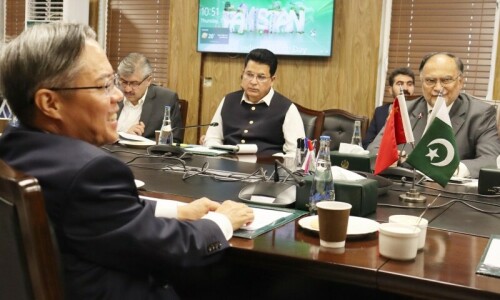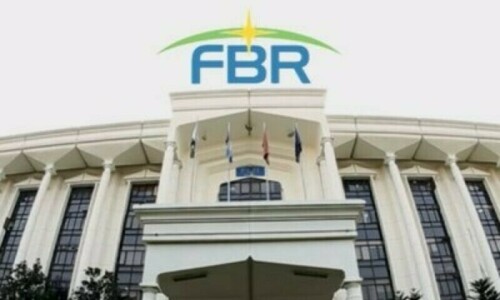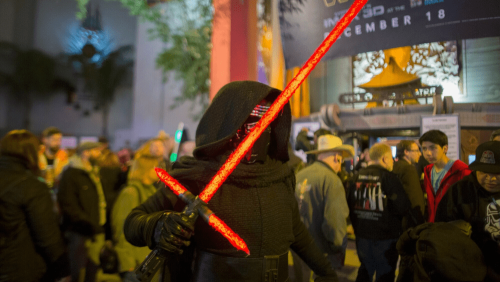
The ordinance passed by President Asif Ali Zardari concerning the Federally Administered Tribal Areas (Fata) last week is a substantial step in extending the equal protection of the laws to all of Pakistan’s citizens.
This ordinance is significant when one looks to the status quo of Pakistan’s leadership, who has never amended the law controlling Fata, which was created by the British Raj to subjugate and divide the region’s residents. Despite the positive progress made through this ordinance, Fata still lacks constitutional protection and the Supreme Court of Pakistan continues to lack jurisdiction to enforce the rights of its citizens. Therefore, this is a small step in the long road ahead for the constitutional recognition of Fata.
Both the Prime Minister and President have criticised the Federal Crimes Regulation (FCR) which controls the Tribal areas and levies outdated and sometimes unjust punishments to the people. The regulation dates back to 1901 and allows for collective punishment to be carried out against a whole tribe for the transgression of one of its members. The punishments levied on an entire tribe ranges from beatings to imprisonment to the confiscation of property. Individuals could be indefinitely held without any sort of judicial hearing to determine their guilt for years. And most devastating of all was that the citizens could not appeal the often harsh decisions of their courts to any higher authority.
In the Sumunder v. State case, Supreme Court Judge A.R. Cornelius stated that the provisions of the FCR were "obnoxious to all recognised modern principles governing the dispensation of justice." In fact, when examined in light of the Constitution of Pakistan, these FCR practices violate article 10, which guarantees a citizen’s right to a fair trial while prohibiting arbitrary detention. However, under Article 247, the Constitution does not apply to the citizens of Fata and the Supreme Court is not permitted to exercise jurisdiction to defend the constitutional rights of the tribal people.
This week’s ordinance amends the FCR to require the government to conduct a judicial hearing within 24 hours of arresting a suspect and prohibits the practice of collective punishment on women and children under the age of 16. The presidential amendment also requires just compensation for citizens whose property has been wrongly seized by the government, and requires compensation to be paid to those falsely accused of crimes. Most importantly, a two-tiered appellate board has been set up for Fata residents to appeal decisions by their courts. However, the judgments of this appellate board are not reviewable by any other court, including the Supreme Court.
While there are some positive provisions in this Ordinance, this law is not the endpoint of the process to recognise Fata and its citizens by President Zardari. In fact, in June of 2011, President Zardari signed another bill concerning FATA which should be remembered in the evaluation of the current ordinance. The Actions (in Aid of Civil Power) Regulation of 2011 applies to Fata exclusively and allows for the military to intern suspects arbitrarily, and permits the military to occupy any citizen’s land without compensation. Further, the regulation allows a court to punish a suspect solely based on the testimony of one army officer, which violates Pakistan’s evidentiary law.
Thus, when one looks to the loopholes left in the FCR amendments package alongside this regulation, one can see that the residents of Fata face a long battle ahead in fully realising their constitutional rights. The ordinance by the president continues to allow for collective punishment to be exercised on all males above the age of 16, which is “obnoxious” to the protections of the Constitution, in the words of Judge Cornelius. Further, the President did not incorporate a wholesale extension of constitutional rights to the people of Fata, and did not allow jurisdiction for the Supreme Court. This lack of protection paired with a regulation allowing for military operations, may allow for unconstitutional detentions and trials for the people of Fata without any constitutional remedy in the coming years.
The executive branch, under President Zardari, has taken a step in giving some rights to the Fata region, but the nation’s parliamentarians should realise that there is much work remaining. The most enduring action that Parliament could take in applying the equal protection of the law to all its citizens would be to amend Article 247, such that the Constitution applies to the region and the Supreme Court be allowed jurisdiction to hear cases. Such an amendment may be unlikely considering the history of the Parliament on this issue. However, one can hope that Zardari’s ordinance allowing rights to fair trial and appeal starts a conversation that may eventually bring about Parliamentary support for a fully recognition of constitutional protections for tribal citizens.
The writer holds a Juris Doctorate in the US and is a researcher on comparative law and international law issues.












































Dear visitor, the comments section is undergoing an overhaul and will return soon.